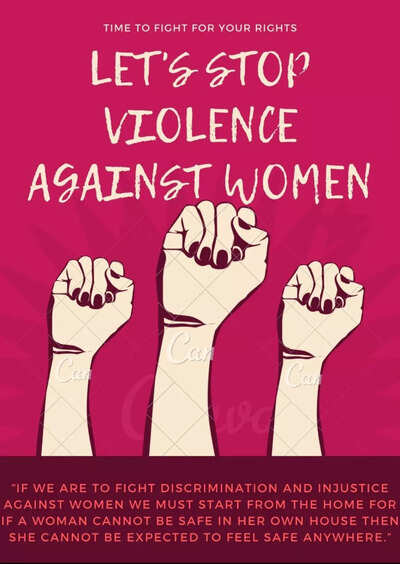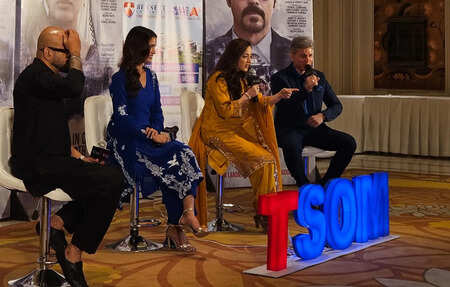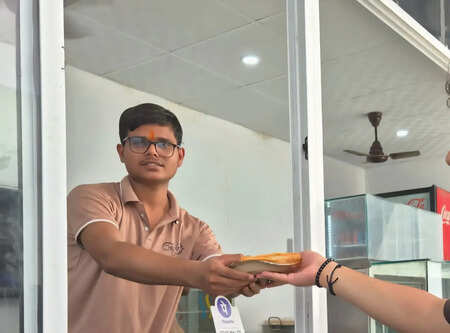In 75 years of freedom women are more unsafe than ever
Times of Bennett | Updated: Jan 29, 2022 18:10

By SHREYA SHARMA
KASGANJ: In the 75 years of India's independence,women ’s safety issues have grown vertically with a steady jump in rape , sexual harassment, honour killing, human trafficking, forced prostitution and domestic violence cases.
“Violence onwomen did peak during the Partition with a rough estimate of around 1 lakh women being kidnapped, raped and killed. However, women were safer back in 1947 than now as most stayed home and had minimal interaction with the outside world,” says Kiran Mathur, an activist for women’s safety.
Being constitutionally independent can never be enough, until the women are safe, she adds.
“Women have been identified as Goddesses to be worshiped for centuries. Still, India is ranked as the most dangerous country for women and ranks first in the gender inequality index,” she says.
Indeed, there has been a 46 per cent rise in complaints of crimes against women in just this year and over half of these were reported in Uttar Pradesh, the National Commission for Women chief, said in a recent Press statement.
“The first step towards women’s freedom against such crimes is their freedom from fear,” Mathur asserts. Most crimes against women take place due to their fear of being shamed and not reporting the crime, she adds.
“We need to make our women stronger and fearless so that they can speak up against atrocity. Women have long been silent because they feel stigmatised,” Mathur says. However, she is quick to put things in perspective.
“Yes, crime against women has increased, but the opportunities brought in by the Government have also empowered women. The situation in 75 years of Independence has changed positively and negatively.
“Today, we have more girls in schools than 75 years ago. Women have taken up professions that were then considered only for men. Government schemes have uplifted women. National helplines for women in trouble have come up only now,” Mathur points out.
But what makes women so vulnerable in India? Charvi, a feminist, says it’s a result of sexism and patriarchy embedded deep into the Indian culture.“I have experienced patriarchy since childhood. Women’s opinion in my family carries no weight. They are not allowed to speak on important issues,” she says.
The only end Charvi sees to this problem, is to create an awareness among the men. “A man must understand that women have to be respected as human beings, no matter where they come from,” she concludes.
KASGANJ: In the 75 years of India's independence,
“Violence on
Being constitutionally independent can never be enough, until the women are safe, she adds.
“Women have been identified as Goddesses to be worshiped for centuries. Still, India is ranked as the most dangerous country for women and ranks first in the gender inequality index,” she says.
Indeed, there has been a 46 per cent rise in complaints of crimes against women in just this year and over half of these were reported in Uttar Pradesh, the National Commission for Women chief, said in a recent Press statement.
“The first step towards women’s freedom against such crimes is their freedom from fear,” Mathur asserts. Most crimes against women take place due to their fear of being shamed and not reporting the crime, she adds.
“We need to make our women stronger and fearless so that they can speak up against atrocity. Women have long been silent because they feel stigmatised,” Mathur says. However, she is quick to put things in perspective.
“Yes, crime against women has increased, but the opportunities brought in by the Government have also empowered women. The situation in 75 years of Independence has changed positively and negatively.
“Today, we have more girls in schools than 75 years ago. Women have taken up professions that were then considered only for men. Government schemes have uplifted women. National helplines for women in trouble have come up only now,” Mathur points out.
But what makes women so vulnerable in India? Charvi, a feminist, says it’s a result of sexism and patriarchy embedded deep into the Indian culture.“I have experienced patriarchy since childhood. Women’s opinion in my family carries no weight. They are not allowed to speak on important issues,” she says.
The only end Charvi sees to this problem, is to create an awareness among the men. “A man must understand that women have to be respected as human beings, no matter where they come from,” she concludes.







